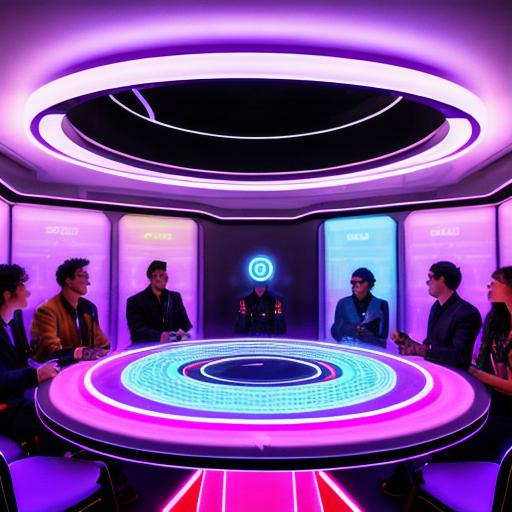The term "metaverse" has been making waves in the digital world, leaving many intrigued and curious about its true definition and potential impact on our future. Let’s delve deeper into this topic, demystifying its meaning and shedding light on how it shapes our digital future.
What is the Metaverse?
The metaverse can be defined as a collective virtual shared space, created by the convergence of virtually enhanced physical reality and physically persistent virtual reality. It’s essentially a persistent, immersive, and interactive 3D environment that’s accessible from anywhere in the world. In simpler terms, it’s a collective virtual universe where users can interact with each other and digital objects in real time.
Exploring its Origins
The concept of the metaverse can be traced back to science fiction novels like "Snow Crash" by Neal Stephenson and "Neuromancer" by William Gibson. However, it wasn’t until Facebook, formerly known as Meta Platforms Inc., announced its intention to pivot towards building the metaverse that the term gained mainstream attention.
The Impact on Our Digital Future
- Revolutionizing Virtual Interaction: The metaverse promises to revolutionize virtual interaction by providing users with a more immersive and interactive experience, making digital connections feel more real.
- Transforming Industries: Various industries like education, healthcare, real estate, and entertainment will be transformed as they adapt to the metaverse, offering new opportunities for growth and innovation.
- Shaping the Digital Economy: The metaverse will give rise to a new digital economy where users can buy, sell, and trade virtual goods and services using cryptocurrencies and non-fungible tokens (NFTs).
- Privacy Concerns: As we move towards an increasingly immersive digital world, privacy concerns become more pressing than ever before, emphasizing the need for robust data protection mechanisms.
- Accessibility: The metaverse offers unprecedented accessibility as users can interact with each other and digital objects irrespective of their physical location or limitations.


In conclusion, the metaverse represents a significant step towards merging the physical and virtual worlds, offering endless opportunities for innovation and interaction. While there are undoubtedly challenges that come with this shift, the potential benefits far outweigh them, making it an exciting prospect to look forward to in our digital future.
